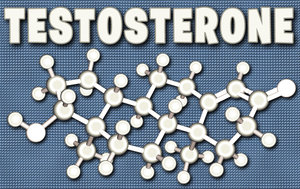Introduction to Low Libido
Low libido, or a diminished sexual desire, is a common concern among American men that can significantly impact quality of life and interpersonal relationships. While it's normal for sexual desire to fluctuate over time, a persistent lack of interest in sexual activity may warrant a closer look from both a medical and psychological standpoint.
Medical Causes of Low Libido
From a medical perspective, low libido can stem from various underlying health conditions. Hormonal imbalances, such as low testosterone levels, are frequently associated with decreased sexual desire. Thyroid disorders, diabetes, and cardiovascular diseases can also contribute to this issue. Moreover, medications for conditions like depression, high blood pressure, and prostate issues often list low libido as a potential side effect. It's crucial for men experiencing a decline in sexual desire to consult with a healthcare provider to rule out or address these medical causes.
Psychological Factors Influencing Libido
The psyche plays a pivotal role in sexual desire. Stress, anxiety, and depression are among the psychological factors that can dampen libido. Relationship issues, such as unresolved conflicts or a lack of emotional intimacy, can also lead to a diminished interest in sex. Additionally, societal pressures and unrealistic expectations about sexual performance can exacerbate the problem, creating a vicious cycle of anxiety and avoidance.
The Interplay Between Medical and Psychological Aspects
It's important to recognize that medical and psychological factors often intertwine. For instance, a medical condition like erectile dysfunction can lead to performance anxiety, which in turn can further decrease libido. Conversely, psychological stress can exacerbate medical conditions, creating a feedback loop that perpetuates low libido. Understanding this interplay is key to developing an effective treatment plan.
Strategies for Addressing Low Libido
Addressing low libido requires a multifaceted approach. From a medical standpoint, treatment may involve hormone replacement therapy, adjusting medications, or managing underlying health conditions. Psychologically, therapy can be instrumental in addressing stress, anxiety, and relationship issues. Cognitive-behavioral therapy (CBT), in particular, has shown promise in helping men reframe negative thoughts about sex and improve their sexual desire.
Lifestyle Modifications and Their Impact
Lifestyle changes can also play a significant role in boosting libido. Regular exercise, a balanced diet, and adequate sleep can improve overall health and, by extension, sexual desire. Reducing alcohol consumption and quitting smoking are also beneficial, as these substances can negatively impact libido. Mindfulness and relaxation techniques, such as meditation and yoga, can help manage stress and improve mental well-being, further supporting sexual health.
The Role of Communication in Relationships
Open communication with partners is crucial when dealing with low libido. Discussing feelings and concerns can alleviate the pressure and anxiety that often accompany sexual issues. Couples therapy can be particularly helpful in navigating these conversations and strengthening the emotional bond, which can, in turn, enhance sexual desire.
Seeking Professional Help
Men experiencing persistent low libido should not hesitate to seek professional help. A healthcare provider can conduct a thorough evaluation to identify any medical causes and refer to a specialist if necessary. Mental health professionals can offer support and strategies to address psychological factors. With the right approach, many men can successfully overcome low libido and enjoy a fulfilling sexual life.
Conclusion
Low libido in American men is a complex issue that requires a comprehensive approach, considering both medical and psychological factors. By understanding the underlying causes and employing a combination of medical treatment, psychological therapy, lifestyle changes, and open communication, men can navigate this challenge and improve their sexual health and overall well-being.
Contact Us Today For A Free Consultation

- Physical Causes of Low Libido in American Males: Hormones, Illnesses, and Lifestyle [Last Updated On: February 20th, 2025] [Originally Added On: February 20th, 2025]
- Unraveling the Link Between Anxiety and Diminished Sexual Desire in American Men [Last Updated On: March 1st, 2025] [Originally Added On: March 1st, 2025]
- Revitalizing Desire: Strategies for Overcoming Low Libido in Long-term Relationships Among American Males [Last Updated On: March 1st, 2025] [Originally Added On: March 1st, 2025]
- Decoding Medical Science: A Comprehensive Approach To Low Libido Issues [Last Updated On: March 2nd, 2025] [Originally Added On: March 2nd, 2025]
- Comprehensive Overview of Male Libido Issues: Causes, Treatments, and Lifestyle Interventions [Last Updated On: March 3rd, 2025] [Originally Added On: March 3rd, 2025]
- Comprehensive Guide to Understanding and Managing Low Libido in Men [Last Updated On: March 4th, 2025] [Originally Added On: March 4th, 2025]
- Exploring Hormonal Influences on Male Libido: Testosterone, Thyroid, and Prolactin [Last Updated On: March 5th, 2025] [Originally Added On: March 5th, 2025]
- Understanding and Managing Low Libido in American Men: Causes and Treatments [Last Updated On: March 6th, 2025] [Originally Added On: March 6th, 2025]
- Understanding Post-Menopausal Libido: Hormonal, Physical, and Emotional Factors Impacting Sexual Desire [Last Updated On: March 7th, 2025] [Originally Added On: March 7th, 2025]
- Understanding Low Libido in Men: Causes, Impacts, and Effective Treatment Strategies [Last Updated On: March 8th, 2025] [Originally Added On: March 8th, 2025]
- Comprehensive Guide to Understanding and Managing Low Libido in Men: Psychological Perspectives and Solutions [Last Updated On: March 9th, 2025] [Originally Added On: March 9th, 2025]
- Navigating the Impact of Chronic Diseases on Male Libido: A Comprehensive Medical Insight [Last Updated On: March 14th, 2025] [Originally Added On: March 12th, 2025]
- Revitalizing Intimacy: Exploring Medical Therapies for Low Libido in Postpartum American Women [Last Updated On: March 13th, 2025] [Originally Added On: March 13th, 2025]
- Revitalizing Desire: Cutting-Edge Medical Treatments for Low Libido in American Males [Last Updated On: March 15th, 2025] [Originally Added On: March 15th, 2025]
- Psychological Causes of Low Libido in American Men: Stress, Depression, and More [Last Updated On: March 17th, 2025] [Originally Added On: March 17th, 2025]
- Low Libido in American Males: Health Risks and the Importance of Seeking Help [Last Updated On: March 17th, 2025] [Originally Added On: March 17th, 2025]
- Understanding Low Libido in American Males: Causes, Diagnosis, and Treatment Options [Last Updated On: March 18th, 2025] [Originally Added On: March 18th, 2025]
- Medication-Induced Low Libido in American Males: Causes and Management Strategies [Last Updated On: March 19th, 2025] [Originally Added On: March 19th, 2025]
- Understanding and Treating Low Libido in Men: Causes and Comprehensive Solutions [Last Updated On: March 19th, 2025] [Originally Added On: March 19th, 2025]
- Diabetes and Male Libido: Understanding and Managing Low Sexual Desire [Last Updated On: March 19th, 2025] [Originally Added On: March 19th, 2025]
- Chronic Illness Impact on Male Libido: Physiological, Psychological, and Management Strategies [Last Updated On: March 20th, 2025] [Originally Added On: March 20th, 2025]
- Medications Impacting Male Libido: Insights and Management Strategies for American Men [Last Updated On: March 20th, 2025] [Originally Added On: March 20th, 2025]
- Natural Supplements for Low Libido in Men: Efficacy, Safety, and Holistic Approaches [Last Updated On: March 21st, 2025] [Originally Added On: March 21st, 2025]
- Low Libido and Depression in American Males: Understanding and Treating the Connection [Last Updated On: March 21st, 2025] [Originally Added On: March 21st, 2025]
- Advancements in Treating Low Libido in American Males: A Comprehensive Approach [Last Updated On: March 22nd, 2025] [Originally Added On: March 22nd, 2025]
- Hyperthyroidism's Impact on Libido in American Males: Hormonal and Psychological Effects [Last Updated On: March 22nd, 2025] [Originally Added On: March 22nd, 2025]
- Understanding Low Libido in Women Over 50: Insights for American Males [Last Updated On: March 23rd, 2025] [Originally Added On: March 23rd, 2025]
- Understanding and Managing Low Libido in American Males: Causes, Diagnosis, and Treatment [Last Updated On: March 23rd, 2025] [Originally Added On: March 23rd, 2025]
- Understanding and Addressing Low Libido in American Males: Causes, Diagnosis, and Treatment [Last Updated On: March 23rd, 2025] [Originally Added On: March 23rd, 2025]
- Post-Pregnancy Low Libido in American Males: Causes and Solutions [Last Updated On: March 23rd, 2025] [Originally Added On: March 23rd, 2025]
- Low Libido in American Males During Partner's Lactation: Causes and Solutions [Last Updated On: March 23rd, 2025] [Originally Added On: March 23rd, 2025]
- Managing Low Libido in Male Surgical Patients: Causes, Impacts, and Strategies [Last Updated On: March 23rd, 2025] [Originally Added On: March 23rd, 2025]
- Understanding and Treating Low Libido in American Males: Causes and Solutions [Last Updated On: March 23rd, 2025] [Originally Added On: March 23rd, 2025]
- Postpartum Libido in Men: Medical Tips and Strategies for Enhancement [Last Updated On: March 23rd, 2025] [Originally Added On: March 23rd, 2025]
- Alcohol's Impact on Male Libido: Physiological Effects and Management Strategies [Last Updated On: March 23rd, 2025] [Originally Added On: March 23rd, 2025]
- Revitalizing Male Sexual Desire: Understanding and Treating Low Libido Holistically [Last Updated On: March 24th, 2025] [Originally Added On: March 24th, 2025]
- Understanding and Addressing Low Libido in American Males: Causes, Impacts, and Solutions [Last Updated On: March 24th, 2025] [Originally Added On: March 24th, 2025]
- Understanding and Addressing Low Libido in American Men: Medical and Lifestyle Approaches [Last Updated On: March 24th, 2025] [Originally Added On: March 24th, 2025]
- Effective Interventions for Low Libido in American Men: A Comprehensive Guide [Last Updated On: March 24th, 2025] [Originally Added On: March 24th, 2025]
- Revitalizing Sexual Desire in Middle-Aged Men: A Holistic Approach [Last Updated On: March 24th, 2025] [Originally Added On: March 24th, 2025]
- Low Libido in American Women: Causes, Impacts, and Multifaceted Treatment Approaches [Last Updated On: March 25th, 2025] [Originally Added On: March 25th, 2025]
- Exploring Risks and Side Effects of Low Libido Treatments in American Males [Last Updated On: March 25th, 2025] [Originally Added On: March 25th, 2025]
- Post-Surgical Libido Recovery: Medical Tips for American Males [Last Updated On: March 25th, 2025] [Originally Added On: March 25th, 2025]
- Understanding Low Libido in Men: Causes, Impacts, and Holistic Solutions [Last Updated On: March 25th, 2025] [Originally Added On: March 25th, 2025]
- Understanding and Addressing Low Libido in American Men: Causes and Solutions [Last Updated On: March 25th, 2025] [Originally Added On: March 25th, 2025]
- Chronic Pain and Low Libido: Understanding the Medical Connection in American Men [Last Updated On: March 25th, 2025] [Originally Added On: March 25th, 2025]
- Managing Low Libido in Male Athletes: Hormonal, Nutritional, and Psychological Strategies [Last Updated On: March 25th, 2025] [Originally Added On: March 25th, 2025]
- Understanding and Overcoming Low Libido in American Males: A Comprehensive Guide [Last Updated On: March 25th, 2025] [Originally Added On: March 25th, 2025]
- Sudden Low Libido in American Males: Medical, Psychological, and Lifestyle Factors [Last Updated On: March 25th, 2025] [Originally Added On: March 25th, 2025]
- Addressing Low Libido in American Males: Psychological, Physiological, and Lifestyle Factors [Last Updated On: March 26th, 2025] [Originally Added On: March 26th, 2025]
- Understanding and Treating Low Libido in American Men: A Holistic Approach [Last Updated On: March 26th, 2025] [Originally Added On: March 26th, 2025]
- Strategies to Boost Low Libido in American Males: Medical and Lifestyle Approaches [Last Updated On: March 26th, 2025] [Originally Added On: March 26th, 2025]
- Low Libido in American Men: Causes, Treatments, and Lifestyle Impacts [Last Updated On: March 26th, 2025] [Originally Added On: March 26th, 2025]
- Exploring Low Libido in Men: Causes, Treatments, and Personalized Approaches [Last Updated On: March 26th, 2025] [Originally Added On: March 26th, 2025]
- Exploring Medical Patterns of Low Libido in Young American Males: Causes and Treatments [Last Updated On: March 26th, 2025] [Originally Added On: March 26th, 2025]
- Exploring the Link Between Low Libido and Weight Gain in American Males [Last Updated On: March 28th, 2025] [Originally Added On: March 28th, 2025]
- Hypertension's Impact on Libido in American Men: Causes and Management Strategies [Last Updated On: March 28th, 2025] [Originally Added On: March 28th, 2025]
- Low Libido in American Males: Causes, Risks, and Medical Importance [Last Updated On: March 28th, 2025] [Originally Added On: March 28th, 2025]
- Chronic Low Libido in American Males: Medical Signs and Management Strategies [Last Updated On: March 28th, 2025] [Originally Added On: March 28th, 2025]
- Age-Related Low Libido in Men: Causes, Treatments, and Future Innovations [Last Updated On: March 28th, 2025] [Originally Added On: March 28th, 2025]
- Low Libido and Unhappiness in American Men: Medical Insights and Interventions [Last Updated On: March 28th, 2025] [Originally Added On: March 28th, 2025]
- Lifestyle Changes to Boost Libido in American Males: A Medical Perspective [Last Updated On: March 28th, 2025] [Originally Added On: March 28th, 2025]
- Managing Low Libido in American Males Post-Chemotherapy: Medical and Lifestyle Approaches [Last Updated On: March 29th, 2025] [Originally Added On: March 29th, 2025]
- Revitalizing Sexual Health: Understanding and Overcoming Low Libido in American Males [Last Updated On: March 29th, 2025] [Originally Added On: March 29th, 2025]
- Understanding and Treating Low Libido in Men: A Holistic Approach [Last Updated On: March 30th, 2025] [Originally Added On: March 30th, 2025]
- Exploring Medical Causes and Solutions for Low Libido in American Men [Last Updated On: March 31st, 2025] [Originally Added On: March 31st, 2025]
- Antidepressants and Low Libido in American Males: Causes, Impacts, and Management Strategies [Last Updated On: April 3rd, 2025] [Originally Added On: April 3rd, 2025]
- Understanding Low Libido in Women: Medical Insights for American Males [Last Updated On: April 4th, 2025] [Originally Added On: April 4th, 2025]
- Exploring Causes and Solutions for Low Libido in American Men [Last Updated On: April 5th, 2025] [Originally Added On: April 5th, 2025]
- Understanding and Addressing Low Libido in American Men: Medical Insights and Solutions [Last Updated On: April 6th, 2025] [Originally Added On: April 6th, 2025]
- Understanding and Addressing Low Libido in American Males: Causes, Impacts, and Solutions [Last Updated On: April 7th, 2025] [Originally Added On: April 7th, 2025]
- Medical Procedures Impacting Libido in American Men: Causes and Management Strategies [Last Updated On: April 8th, 2025] [Originally Added On: April 8th, 2025]
- Medical Factors Impacting Low Libido in Women Under 40: Insights and Solutions [Last Updated On: April 8th, 2025] [Originally Added On: April 8th, 2025]
- Addressing Low Libido in Men: Causes, Diagnosis, and Multifaceted Treatment Approaches [Last Updated On: April 9th, 2025] [Originally Added On: April 9th, 2025]
- Medical Causes and Management of Low Libido in American Men [Last Updated On: April 12th, 2025] [Originally Added On: April 12th, 2025]
- Medical Causes and Treatments for Low Libido in American Men [Last Updated On: April 12th, 2025] [Originally Added On: April 12th, 2025]
- Managing Low Libido in American Males: Causes, Impacts, and Holistic Approaches [Last Updated On: April 12th, 2025] [Originally Added On: April 12th, 2025]
- Understanding and Addressing Low Libido in American Males: A Holistic Approach [Last Updated On: April 12th, 2025] [Originally Added On: April 12th, 2025]
- Understanding and Treating Low Libido in Men: Causes and Solutions [Last Updated On: April 15th, 2025] [Originally Added On: April 15th, 2025]
- Understanding and Treating Low Libido in American Males: Symptoms, Causes, and Recovery [Last Updated On: April 15th, 2025] [Originally Added On: April 15th, 2025]
Word Count: 582





















